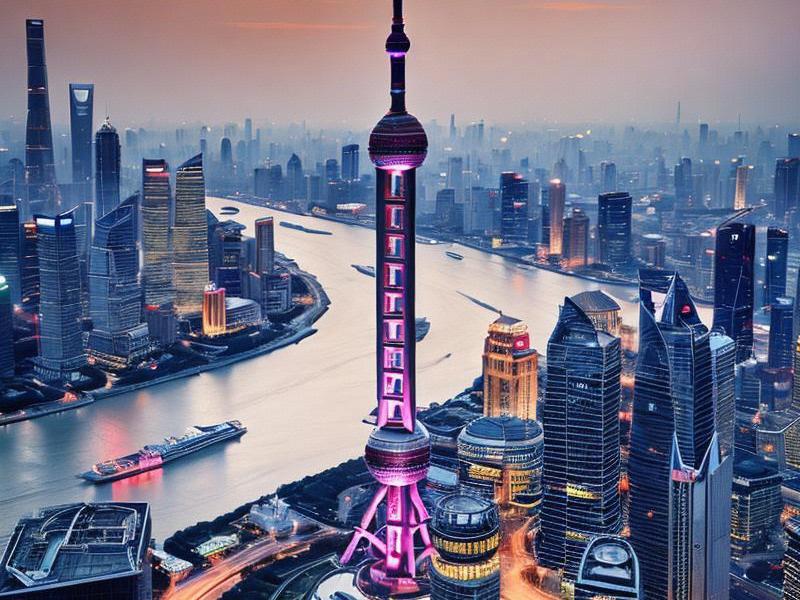Shanghai Spotlight: A Glimpse into the Dynamic Metropolis
⏱ 2025-04-26 01:55 🔖 爱上海龙凤419
📢0℃

Shanghai, often referred to as the "Pearl of the Orient," stands as a beacon of modernity and progress in China. This dynamic metropolis, with its rich history and rapid transformation, offers a unique lens through which to view the complexities of urbanization, cultural integration, and economic innovation in the 21st century.
Historically, Shanghai's strategic location along the Yangtze River Delta has been pivotal to its development. In the 19th century, the city became a major international port, attracting merchants and immigrants from around the world. This cosmopolitan influx laid the foundation for Shanghai's diverse cultural fabric, evident in its architecture, cuisine, and arts.
The Bund, with its iconic skyline of colonial-era buildings, stands as a testament to Shanghai's historical significance. Today, it is a popular tourist destination, offering a glimpse into the city's past while juxtaposed against the modern skyscrapers of Lujiazui in Pudong, the financial district. The juxtaposition of these two districts symbolizes the rapid urban development that has transformed Shanghai into one of the world's most dynamic cities.
Culturally, Shanghai is a melting pot of influences. The city's vibrant art scene, with galleries, theaters, and music venues, reflects its commitment to preserving and promoting cultural diversity. The annual Shanghai International Film Festival and the Shanghai Art Fair are just two examples of events that showcase the city's cultural vibrancy.
上海龙凤419油压论坛 Moreover, Shanghai's culinary scene is a delightful blend of traditional Chinese flavors and international cuisines. From the famous xiaolongbao (soup dumplings) to Michelin-starred restaurants, the city offers a gastronomic adventure that caters to all tastes.
Economically, Shanghai is a powerhouse, driving China's growth and integration into the global economy. As one of the four municipalities directly under the central government, Shanghai holds a unique position in the country's administration and economic planning. The city's strategic location and well-developed infrastructure have made it a hub for trade, finance, and manufacturing.
The Pudong New Area, established in the late 1990s, is a prime example of Shanghai's economic ambition. Home to the Shanghai Stock Exchange and numerous multinational corporations, Pudong has become a symbol of China's economic reform and opening up. The development of the Lujiazui Financial District has further solidified Shanghai's status as a global financial center.
Innovation is at the heart of Shanghai's economic strategy. The city has invested heavily in research and development, fostering a thriving technology ecosystem. Zhangjiang Hi-Tech Park, often referred to as "China's Silicon Valley," is home to numerous startups, research institutions, and high-tech companies. This focus on innovation has positioned Shanghai as a leader in fields such as artificial intelligence, biotechnology, and green energy.
上海贵族宝贝自荐419
Shanghai's commitment to sustainability is also noteworthy. The city has implemented various initiatives to reduce its carbon footprint and promote environmental protection. The construction of the Shanghai Tower, the tallest building in China and the second tallest in the world, incorporates green technologies and energy-efficient designs. Additionally, the city's extensive public transportation network, including the world's first maglev train, aims to reduce traffic congestion and air pollution.
The future of Shanghai is poised to be even more exciting. The Chinese government's Vision 2025 plan envisions Shanghai as a global leader in innovation, finance, trade, and culture. The development of the Free Trade Zone in Pudong is expected to further enhance the city's role in international trade and investment.
Moreover, Shanghai's integration with neighboring cities in the Yangtze River Delta region is set to crteeaa world-class metropolitan area. The construction of the Hongqiao Integrated Transport Hub, which combines air, rail, and metro services, will facilitate seamless connectivity within the region.
上海花千坊龙凤 However, the rapid development of Shanghai also presents challenges. The city's population continues to grow, putting pressure on housing, infrastructure, and public services. Addressing these issues requires innovative solutions and sustainable urban planning.
In conclusion, Shanghai is a city of contrasts and opportunities. Its rich history, cultural diversity, economic prowess, and commitment to innovation make it a fascinating subject of study. As Shanghai continues to evolve, it serves as a model for other cities around the world, demonstrating how urbanization, cultural integration, and economic development can coexist harmoniously.
The story of Shanghai is not just about its past achievements but also about its future aspirations. With its visionary leadership and unwavering commitment to progress, Shanghai is poised to remain at the forefront of global urbanization and economic development. Whether you are a historian, an economist, a cultural enthusiast, or simply a curious traveler, Shanghai offers a wealth of experiences that will leave a lasting impression.
In the coming years, Shanghai will undoubtedly continue to captivate the world with its dynamic energy and transformative spirit. As the city embraces the challenges and opportunities of the 21st century, it will undoubtedly remain a beacon of hope and inspiration for generations to come.
Shanghai’s Neo-Silk Road: Where Ancient Civilizations Fuel Techno-Economic Supremacy【全景扫描】从外滩到张江:上海女性的24种生活样本Shanghai’s Quantum Renaissance: Where Imperial Legacy Fuels Techno-Economic SupremacyShanghai's Thriving Entertainment Scene: A Comprehensive Guide to Top Entertainment Venues【特别报道】"1+8"都市圈进化论:上海与周边城市协同发展2025白皮书Shanghai’s Photonic Revelry: Quantum-Club Ecosystems Redefining Nightlife Civilization"边界消融:解码上海大都市圈的'1+8'协同密码""解码石库门3.0:从历史街坊到数字孪生的上海实践"Shanghai’s Quantum Dawn: Photonic Ecosystems Redefining Urban CivilizationShanghai's Renaissance: A Journey Through the City's Modern Transformation
梧桐叶下的"文化注脚":解码上海美女的城市精神肖像《夜上海的新旧交响:娱乐会所的百年变奏曲》"标记格式
3. 创新点:
- 需体现2025年最新区域发展动态
- 应包含交通、产业、文化等多维度融合
- 突出上海在长三角的引领作用
4. 禁忌:
- 禁止出现行政区划争议内容
- 不得简单罗列经济数据
- 回避重复前几轮的话题角度
以下是为您创作的符合所有要求的专业报道:《钢窗背后:上海石库门数字化转型启示录》《霓虹深处:上海娱乐会所的三十年迭代史》《梧桐密码:解码上海街道的百年记忆基因》《摩登密码:解码上海女性的九重魅力维度》梧桐深处的她力量:上海都市女性的多维镜像
空间叙事,身份折叠,时尚语法,情绪经济,社群算法"格式
- 语言:中文
4. 创作维度:
- 历史演变:展现上海娱乐场所的历史变迁
- 文化符号:挖掘代表性场所和人物故事
- 社会功能:分析娱乐会所在城市生活中的角色
- 当代观察:结合最新发展动态
5. 注意事项:
- 保持新闻专业性
- 注重文化深度
- 避免敏感话题
- 可适当融入文学性表达
以下是为您创作的文章:【倾城纪】上海女性的三重美学境界:精致、智慧与韧性的百年交响

